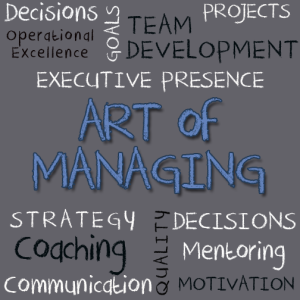 Mediocre is on display daily in too many areas of our society and in too many of our businesses. From the boss who just doesn’t care to our government seemingly barely functioning to the miserable help-lines of too many firms to the slow gait…the shuffle of retail workers at organizations that definitely don’t care, ordinary and average are epidemic.
Mediocre is on display daily in too many areas of our society and in too many of our businesses. From the boss who just doesn’t care to our government seemingly barely functioning to the miserable help-lines of too many firms to the slow gait…the shuffle of retail workers at organizations that definitely don’t care, ordinary and average are epidemic.
Mediocrity has a way of numbing our senses and taking the fight out of us. It impacts everyone at all levels of leadership and all employee groups. Individually and collectively, we reduce our standards to the lowest accepted level and then shuffle along dispensing the ordinary until something shocks our system. Often, the shock comes too late.
As a manager, you play a critical part in either perpetuating mediocrity or helping your team break free in pursuit of extraordinary. The latter is a lot more fun and rewarding for all involved.
8 Ideas to Kick Mediocrity to the Curb in Pursuit of Extraordinary:
1. Start with the belief that your attitude and your actions will make a difference. In a world where mediocre is the norm, your extraordinary effort to help, serve, lead, please, thank, teach, manage, fix and engage will all be noticed. Not by everyone, but by many of us.
2. If your team works on the phone, teach them to lead with their smiles. Customers hear smiles over the phone and that helps us forget that we just navigated a 42-step phone-tree and a 36-minute wait seeking someone who could explain how to work a feature on the device in our hand that has more technology than the entire Apollo program which sent humans to the moon and successfully retrieved all of them.
3. If your team works in front of customers teach them to lead with direct eye contact and a smile. I don’t care if you are the manager at XYZ Big Box or the Shift Supervisor at the Driver’s License Bureau, the only downside of your employees smiling and making eye contact will be the fainting and momentary loss of equilibrium of your customers. They’ll recover and you’ll have changed the world in your own small way. (Note: in some cultures, direct eye contact is frowned upon. Let’s assume a U.S. based business.)
4. Extraordinary starts with the behaviors you model you set as a manager. Define “extraordinary” in your environment and then teach and model the behaviors. If you don’t, who will?
5. Set expectations for performance that is extraordinary. Create a culture that enforces accountability for the right results and reward those who deliver.
6. Remember, extraordinary isn’t just for external customers. Model extraordinary across employee groups and watch it grow.
7. Eliminate those who don’t really care. Not everyone will respond to your guidance and teaching. Not everyone aspires to extraordinary. Encourage those who are comfortable with mediocrity to practice this approach by working for your competitors.
8. Make hiring for extraordinary a religion. Not everyone is suited to extraordinary in every environment. Your challenge is to identify those underlying values and behaviors that are so critical to transcending mediocrity in your world and then recruit and hire for those items. Few of us would pass Southwest Airlines’ rigorous filters for fun and love of people and Zappos is so committed to getting just the right people, the firm offers new employees a cash incentive to leave once they’ve completed the firm’s training program. In Zappos’ case, it’s cheaper and more productive to pay someone who isn’t feeling the firm’s definition of “extraordinary” to leave than to retain them and have them poison the well.)
The Bottom-Line for Now:
Kicking mediocrity to the curb doesn’t require expensive consultants, confusing restructuring or an epiphany around strategy. It’s common sense coupled with a strong sense of personal accountability to teach, model and reward the behaviors that promote extraordinary in your organization.
—
More Professional Development Reads from Art Petty:
Don’t miss the next Leadership Caffeine-Newsletter! Register here
For more ideas on professional development-one sound bite at a time, check out Art’s latest book: Leadership Caffeine-Ideas to Energize Your Professional Development.
New to leading or responsible for first time leader’s on your team? Subscribe to Art’s New Leader’s e-News.
 An ideal book for anyone starting out in leadership: Practical Lessons in Leadership by Art Petty and Rich Petro.
An ideal book for anyone starting out in leadership: Practical Lessons in Leadership by Art Petty and Rich Petro.
